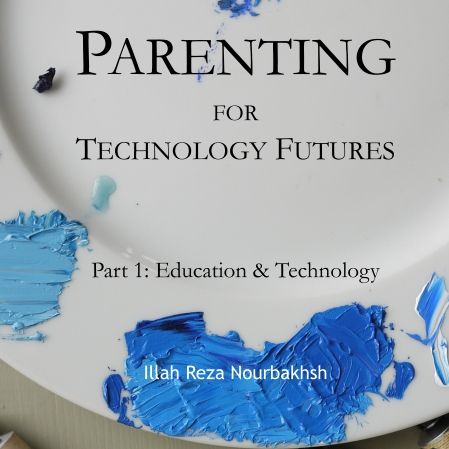Don't Let a Robot Take Your Child's Future Career: Roboticist's Book Offers Educational Advice for Parents Carnegie Mellon's Illah Nourbakhsh Says Technology Fluency Will Help Children Flourish
Byron SpiceMonday, March 9, 2015Print this page.

Illah Nourbakhsh says robots and artificial intelligence will increasingly displace people from many conventional jobs. The professor of robotics at Carnegie Mellon University has even written a book about it, called "Robot Futures."
It's enough to make parents despair over their children's career prospects, he acknowledged, and that's why he's publishing a pair of follow-up books, "Parenting for Technology Futures." Part 1: Education and Technology is now available on Amazon.com.
The key, he said, is to raise children who are "technologically fluent."
"If we want our children to flourish in a technology-rich future, we need them to understand technology deeply — so deeply that our kids influence the future of technology rather than simply being techno-consumers, along for the ride," he writes.
In the 64-page first volume, Nourbakhsh provides an overview to help parents understand the strengths and shortcomings of technology education in schools, including the movement to STEM (science, technology, engineering and mathematics) education, digital learning and massive open online courses, or MOOCs.
He also emphasizes the important roles that parents play, noting students only spend 20 percent of their time in school. Even if parents don't consider themselves technologically fluent, they can help their children achieve fluency with sufficient time and effort.
"There are no shortcuts to developing tech fluency, and there is no way to outsource the parent's role to school, after-school or video games," Nourbakhsh writes.
Owning a computer is not essential to a child becoming technologically fluent, he noted, but a parent does need to devote time to the process. He suggests educational resources that are available to parents, some at little-to-no cost.
"There is no doom-n-gloom or fear-mongering about technology in this book," said Junlei Li, associate professor of psychological science, early learning and children's media at St. Vincent College. "Rather, there is a lot of encouragement and empowerment that comes from understanding what technology can and cannot do for our children and ourselves. There is a clear call to assert ourselves, as human beings, to make and give meaning to the technology around us."
Though an upcoming second volume will go into step-by-step detail on how parents can help their children embrace technology as a tool rather than fear it, the first volume includes some suggested activities. For instance, one exercise Nourbakhsh recommends is creating a "Producer/Consumer Table." Sit with your child and compile a list of ways she uses a computer. Then rewrite the list into a series of columns: Produce, Interact, Consume. Activities that involve watching shows, reading cartoons and looking at other people's blogs and galleries should be placed in the Consumer column, while activities such as writing poems, creating a picture blog and editing videos would be placed in the Produce column. Activities such as running a touch-typing tutor, playing games or using Khan Academy would be categorized as Interact.
"If the activities are evenly distributed between Produce, Consume and Interact, then you are doing very well indeed," he said. "If there are nearly no activities under Produce, and the Interact category lacks creative or knowledge-building examples, then there is room for mindful improvement."
At Carnegie Mellon, Nourbakhsh directs the CREATE Lab, where research projects include such educational programs as integrating robotics into non-technical school subjects, developing a robot that helps students learn computer programming and a program that encourages students from kindergarten and up to explore the workings of their toys and learn about electrical circuitry.
Byron Spice | 412-268-9068 | bspice@cs.cmu.edu
